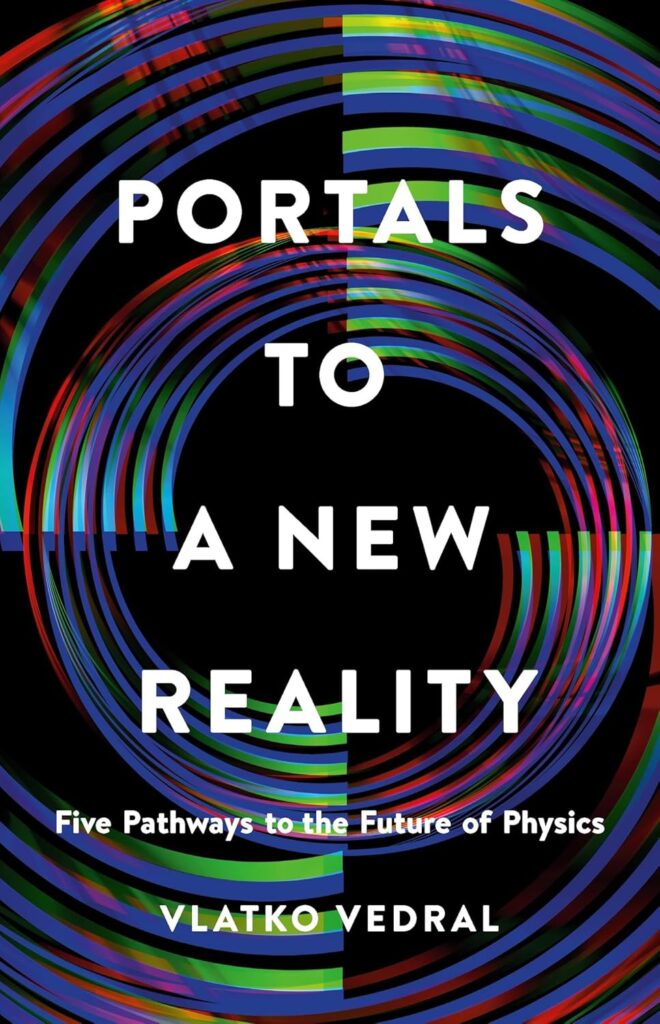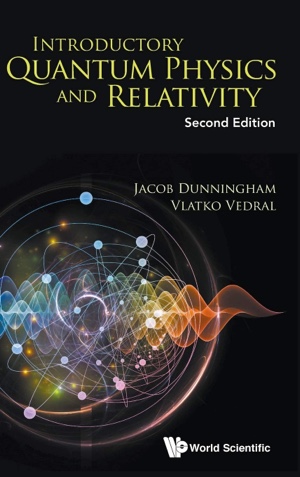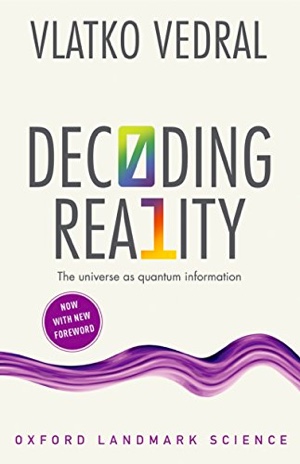Quantum Physics and Consciousness
I know, I know. Yes, it’s a weird topic, but it has been receiving a great deal of coverage and all sorts of things have been claimed and argued. So, here is my two cents.
There are people out there who think that consciousness is the biggest mystery in the universe, so much so that it cannot be explained in any emergent way (unlike, for instance, the eye, for which the theory of evolution suffices and we have a perfectly good explanation how animals without eyes gave rise to animals with eyes). Those people then argue that the inescapable conclusion must be that consciousness is everywhere and predates and underpins everything else. This view – that everything must be conscious – is called panpsychism.
Now, a physicist like myself has a problem with this idea. Take a photon. It is the simplest particle we know, a quantum of light. A photon requires only 3 numbers to be specified. Its colour (read: frequency), its direction of propagation (read: momentum) and the direction in which its electric field oscillates (read: polarization). Once you’ve specified these, you’ve told us everything we need to know to fully describe this photon. It seems that consciousness requires at least some non-trivial information processing and therefore a photon is unlikely to be able to support such a thing given its simplicity.
This is of course not to say that if we are given lots of photons, we could not have something conscious. On the contrary. We already know that we can make a universal quantum computer using only photons as qubits (theoretically speaking). And this of course presents us with a fascinating possibility to make an AI out of completely non-material components! Imagine an all-optical brain. But a single photon? No chance.
Already being able to artificially generate consciousness in some physical system would be a big deal, even if we had to use significant resources. We don’t yet know if even this is possible – but we don’t know of any law of physics that says it’s impossible. However, the fact that we might be able to artificially simulate/create conscious entities brings us to the following intriguing possibility. If a complex information-processing entity can somehow be programmed to be conscious, then is consciousness really anything special?
And this leads us to the diametrically opposite view, the one that I am actually more sympathetic to. Namely, that nothing in the universe is conscious! We might call such a stance ‘apsychism’. Some information processing (like what all apes seems to have evolved, or even octopi with their amazing “delocalized brains”) feels like a higher degree of awareness that the thinking entities have of themselves, but is this really anything special and does it require us to undertake some extreme modifications of how we already understand the universe? Thomas Henry Huxley must have been an apsychic judging by this statement he made in one of his famous essays (and in what would now be considered a highly politically incorrect language): “What proof is there that brutes are other than a superior race of marionettes, which eat without pleasure, cry without pain, desire nothing, know nothing, and only simulate intelligence as a bee simulates a mathematician?”
There is of course a separate question to raise at this point, which is to do with quantum physics being relevant for the functioning of the brain. Roger Penrose for instance has suggested that quantum physics and the so-called gravitational state-reduction (collapse) of quantum states are responsible for consciousness. This may or may not be so, but the related question of quantum effects in the brain is still worth exploring, even if they have nothing to do with consciousness. If birds use quantum effects to navigate around the globe and plants use quantum effect to photosynthesise, then is it that much of a stretch to hypothesize that some processes in the brain are also quantum?
This view too has frequently been hastily dismissed. The brain is large, warm and wet some people would say. Therefore, it is too noisy for any significant quantum physics to be taking place. However, this argument is not correct. Quantum processes still take place in the brain (and everywhere else) at timescales that are short enough and scales that are small enough for noise not to be able to affect them much (see a paper by Matthew Donald). It is perfectly possible that gazillions of such small quantum processes add up to something that ultimately contributes to the brain’s functionality (and, I emphasize again, completely independently of whether or not we believe it to be conscious).
The question of quantum effects in the brain is therefore as valid as any other physics question and I think it is very much worth exploring. We certainly do not really understand how the brain does what it does, and so understanding the microscopic processes in the brain in all minute detail seems to be an important undertaking. There is also no evidence that there is any quantum entanglement, the key quantum effect, anywhere in the brain.
It is perfectly possible that we would ultimately answer this question of quantum effects in the brain in the negative. It is possible that classical information processing on its own suffices to build something resembling a biological brain and even being conscious. Some people would go even further and argue that consciousness can, in fact, only be built on classical logic of definitive states. Eugene Wigner, for instance, was of that opinion, saying that quantum effects stop once they are observed by conscious entities like us. In other words, quantum superpositions of being in two places at the same time cannot survive our observations.
And of course I mean all this at the relevant level of logic and information processing. I’ve already said that at some small enough scales all Nature, as we know from the last hundred years of experimentation, is bona fide quantum. At some level everything is quantum. All the atomic and molecular structures of the brain (and not just), many chemical processes therein, electrical currents in neurological impulses, clearly owe it to quantum physics. But, the question we are asking is different. We are asking if larger scale quantum effects, such as the ones needed for quantum computation, might also be taking place in the brain. And furthermore, are they crucial for its basic functions?
And the honest answer is, we haven’t the foggiest.
But what I do know is this. If I were a twenty-something year old, starting my research in physics now, I would jump on this problem without hesitation. It is wide open, intellectually stimulating and, solving it, could have amazing consequences. Perhaps it would allow us to download a person’s brain onto a hard disc and transfer in onto another brain while preserving their identity. Perhaps we would not even need hard discs and could (quantum?) teleport directly from one brain to another. One can speculate about all this ad infinitum, but the key – as always – is to find tractable, relevant questions to start this line of inquiry in a fruitful manner.
Sign up to my substack
BOOKS
ASK ME ANYTHING!
If you'd like to ask me a question or discuss my research then please get in touch.





